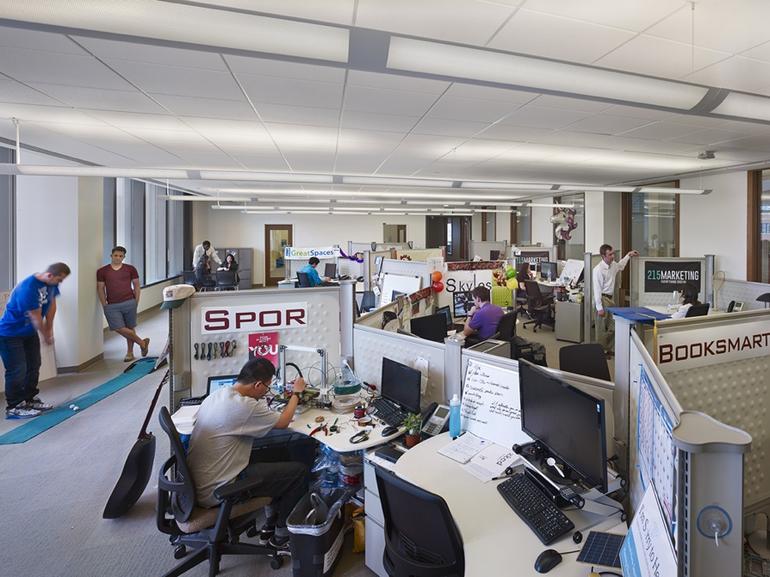We hope everyone is staying safe and healthy at this time, and that students and parents are staying sane while confined to their homes. To provide some good reading material, we’re continuing our Virtual Visits series for students who are currently unable to visit college campuses. Today, we’re taking a closer look at Drexel University’s Charles D. Close School of Entrepreneurship, which offers students the unique opportunity to earn a degree from an independent school of entrepreneurship, rather than from a program within a business school.
The Facts:
- Location: Philadelphia, PA (urban campus)
- Total Students: Approximately 615 undergraduates
- First Incoming Class: 2014
History:
Donna De Carolis, PHD, the Founding Dean of the Close School, saw the need for an freestanding entrepreneurship school while serving as an associate dean for Drexel’s LeBow College of Business. Although entrepreneurship was being offered as concentration within the business school, she found that this was limiting for students studying other disciplines who were blocked from enrolling in entrepreneurship electives. Furthermore, she found that business schools tended to operate in silos, prohibiting the collaborative nature that is fundamental to creativity and ingenuity. And, lastly, but perhaps most importantly, an entrepreneurship program housed in a business school wasn’t equipped to take into account the personal qualities that are so critical for today’s entrepreneurs–traits like creativity, resilience, initiative, and confidence.
Of course, there will always be pushback over whether skills like these, which we often consider inherent, can be taught. According to Carolis, however, they most certainly can. The key is experiential learning, mentorship…and failure. The Close School’s model is based on a cycle of trial and error, in which students are encouraged to pitch and create, and then supported when challenges and setbacks inevitably occur. The idea is that if students learn early on that failure is an intrinsic component of business, they will be more equipped to handle these challenges when developing businesses in the future.
Academics:
- BA (3, 4, or 5 years) or Minor in Entrepreneurship and Innovation
- Concentrations in New Venture Creation, Social Entrepreneurship, and Corporate Entrepreneurship
- Required courses focus on both personal qualities and process. Examples include Mindfulness & Wellbeing, Entrepreneurial Law, Life Strategies, Building Entrepreneurial Teams, and Ideation. Learn more about the degree requirements here.
- Students are required to have a minor, and there is room within the curriculum for students to double major
- Launch It course provides students with $2,000 to de-risk businesses and guidance as they launch a startup over the course of 10 weeks
- Entrepreneurs in residence work with students and provide mentorship
- Faculty deliberately minimized prerequisites in order to make the majority of courses available to all students university wide
Facilities & Opportunities:
- Baiada Institute serves as an incubator for students, in which approximately 20 companies operate at once. Short-term 3-month flex spaces are available for rent
- Entrepreneurship Co-Op provides $15,000 in funding for students to build a company for six months. Students receive a dedicate workspace and mentorship
- Startup Fest is the annual entrepreneurship event, featuring a Baiada Incubator Competition, fast pitch competition, expo, speakers, and awards ceremony
Our Takeaway
Because the school is in its early stages, it’s likely that any incoming class will experience changes in curriculum offerings, facilities, funding and opportunities by the time they graduate. This school is a great option for students who are comfortable with taking risks, receiving constant feedback, being pushed outside their comfort zones, and jumping into experiential activities from the start. It seemed clear to us that this school offers a wonderfully supportive environment for budding entrepreneurs, but it is certainly not for the faint of heart.
Interested in more virtual visits but not sure entrepreneurship is your calling? Read our recap of Elon University, a mid-sized university with a robust and versatile core curriculum and wide range of majors.


